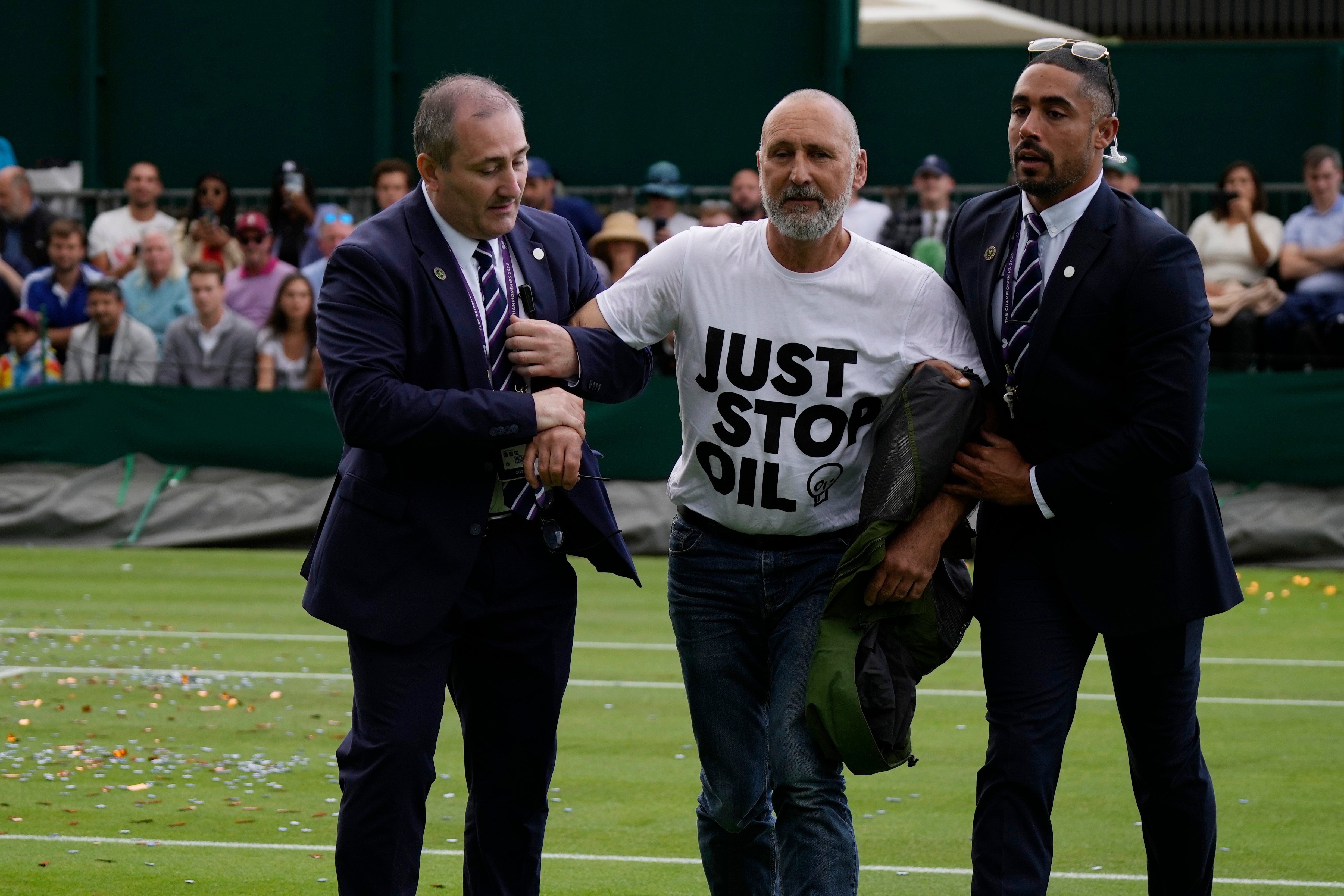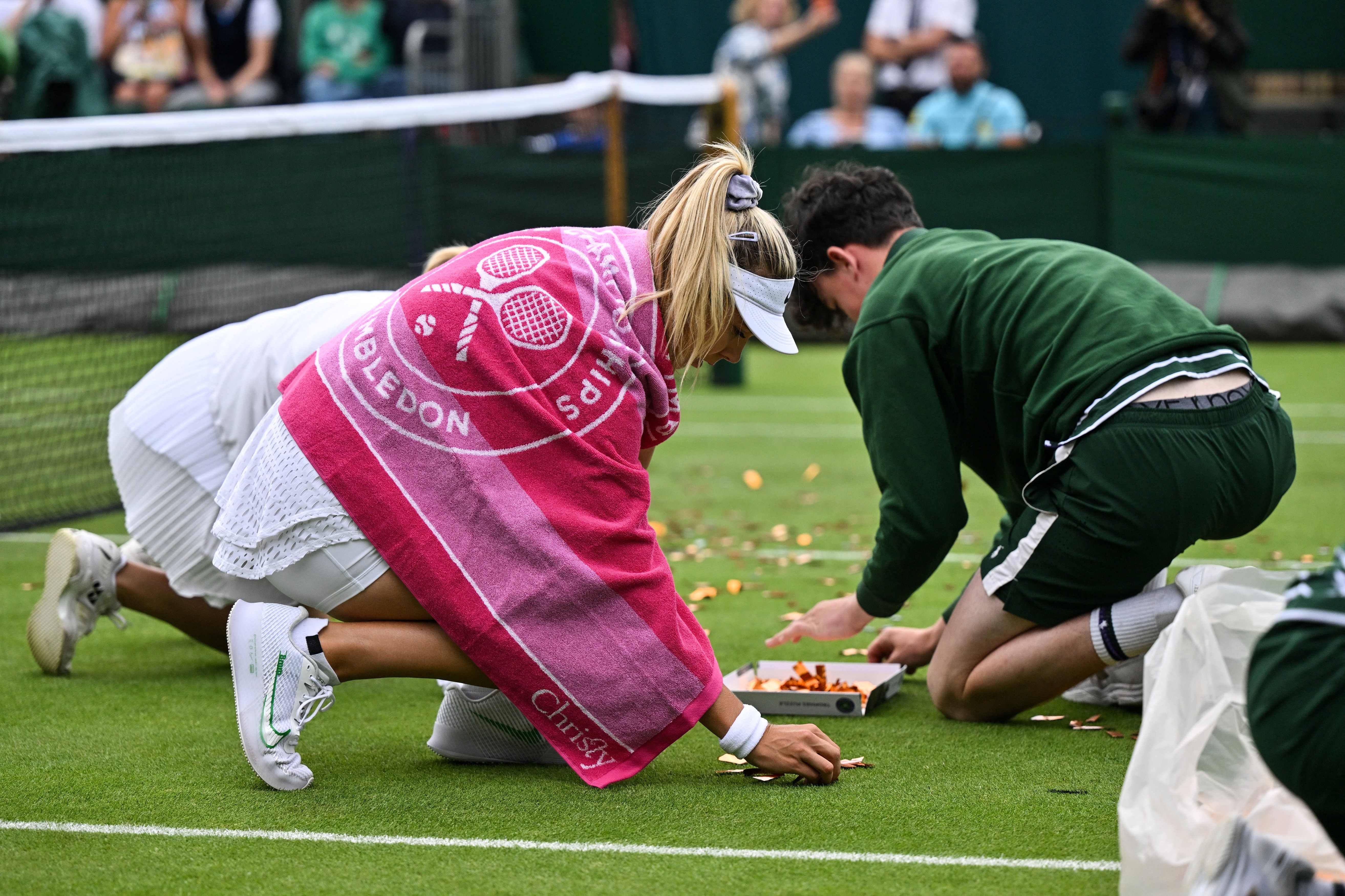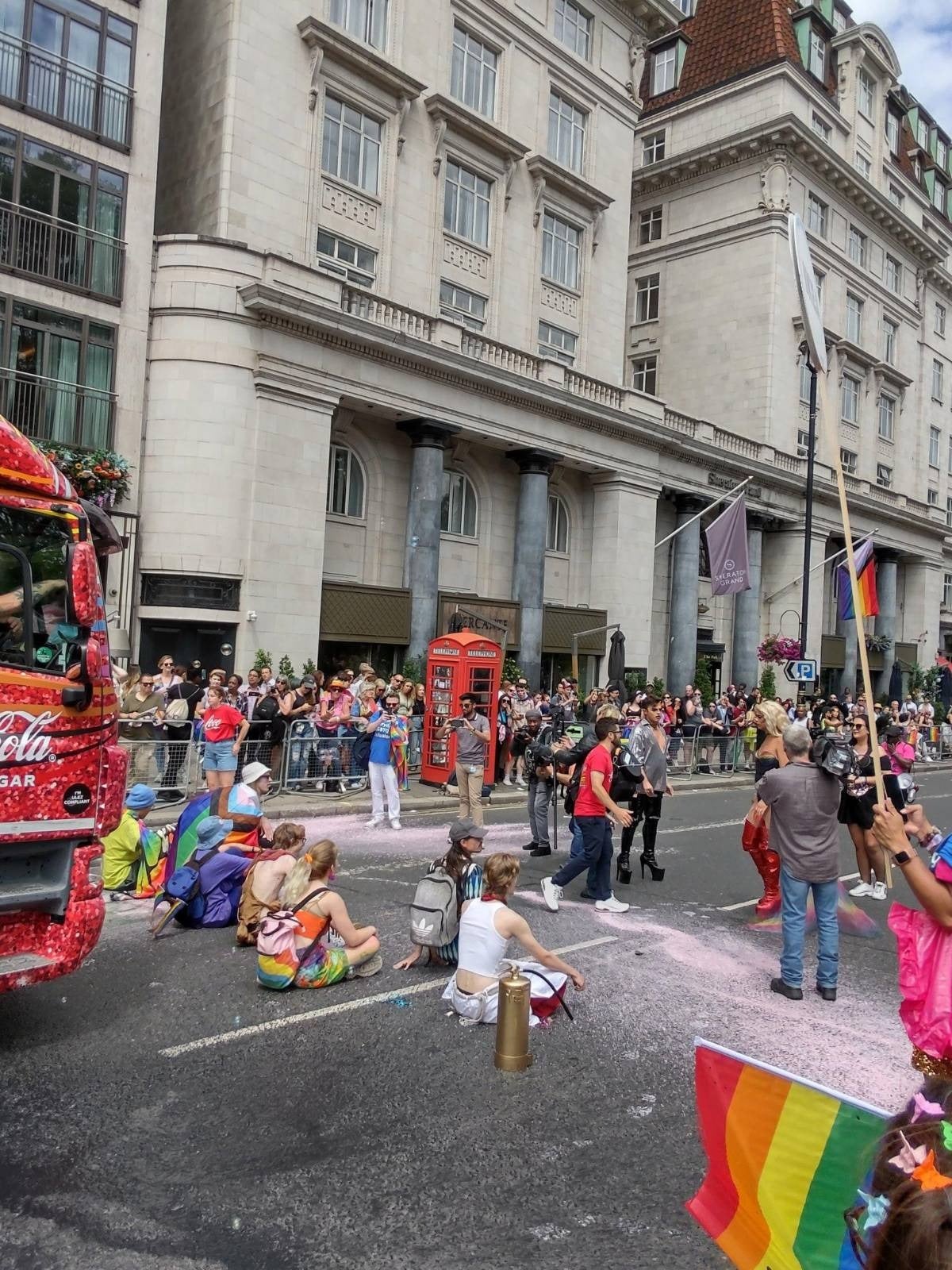Just Stop Oil: Are the climate group’s demonstrations at sporting events against the law?
Disruptive tactics deployed by environmentalists divide opinion
The environmental activist group Just Stop Oil has grown increasingly prominent over the last year over its use of “nonviolent civil resistance” tactics to disrupt public events in Britain in order to draw attention to the worsening plight of the climate.
Unlike Extinction Rebellion, which has a more generalised message, Just Stop Oil specifically aims to persuade the UK government to end fossil fuel exploitation, stop the award of new exploration licences for oil and gas projects and invest in more sustainable renewable energy ventures instead.
Like the similarly issue-focused Insulate Britain, its demonstrators have set up roadblocks to bring Britain’s motorways to a standstill and have made international headlines through publicity stunts like throwing tomato soup at Vincent Van Gogh’s 1888 painting “Sunflowers” in the National Gallery.

But disrupting major sporting events is becoming Just Stop Oil’s signature form of protest and has certainly yielded some extraordinary scenes.
These include 21-year-old engineering student Louis McKechnie zip-tying himself by the throat to Asmir Begovic’s goal post during a Premier League match between Everton and Newcastle or an explosion of orange powder interfering with play at the World Snooker Championships at the Crucible.
Most recently, protesters attempted a pitch invasion at the second Ashes test at Lords, from which they were dragged away by England wicketkeeper Jonny Bairstow and captain Ben Stokes and have stormed the courts to throw orange confetti at Wimbledon, forcing competitors like Katie Boulter to pick up the pieces so that her match could proceed.
Few would disagree with the justness of Just Stop Oil’s cause but many object to the strategies its members deploy in promoting it, which have frequently resulted in angry confrontations with motorists on the roads and with incensed spectators in stadiums.
Labour leader Sir Keir Starmer sought to tap into that popular anger on Thursday when he said of Just Stop Oil during a speech: “I just think they need to just stop. Particularly this last week, they’ve been interrupting iconic sporting events, causing massive disruption.
“There’s a huge arrogance involved, that they’re the only people that understand the argument, that their tactics are going to win.”

That came, incidentally, shortly after Sir Keir himself had been interrupted by demonstrators from another group, Green New Deal Rising, who accused him of U-turning on his climate pledges, illustrating the growing sense of division surrounding the global heating crisis.
While the likes of Gary Lineker, Sir Andy Murray and Sir Lewis Hamilton have expressed their support, the activists have also been roundly booed by the crowd at Wimbledon this week.
So are Just Stop Oil’s activities legal?
In the case of blocking motorways, the answer is a simple no and its activists face fines and a maximum penalty of 51 weeks in prison for the offence of wilfully obstructing a public highway under the new Public Order Act 2023.
Transport bodies like National Highways and Transport for London have sought High Court injunctions in order to curtail this approach, as anyone found to have breached such a prohibition can be held in contempt of court and face imprisonment, an unlimited fine or the seizure of their assets.

But Just Stop Oil has pushed back against such opposition by pointing to a Supreme Court ruling from 2021 that found that accommodations should be made to support nonviolent protests and that there should be a “certain degree of tolerance to disruption to ordinary life, including the disruption of traffic”.
As for its actions at sporting events, everyone has the right to make a peaceful protest and to protect themselves under the Human Rights Act.
That said, that right is not absolute and police have the power to limit protests if they have reason to believe “serious public disorder, serious damage to property or serious disruption to the life of the community” could arise from it.
Those powers were enhanced last year by the controversial Police, Crime, Sentencing and Courts Act 2022, which allowed officers to impose start and finish times, set noise limits, apply the rules to single-person demonstrations, made it an offence for participants not to obey restrictions they “ought” to have known about and introduced a new offence of “intentionally or recklessly causing public nuisance”.
Even more targeted anti-protest legislation, the aforementioned Public Order Act, followed this year, granting tougher powers of prosecution against those accused of interfering with key national infrastructure.

The issue of civil disobedience in Britain was discussed in a famous House of Lords appeal case in 2006, considering damage done to UK military installations by opponents of the Iraq War, in which Lord Hoffman said: “Civil disobedience on conscientious grounds has a long and honourable history in this country.
“But there are conventions which are generally accepted by the law-breakers on one side and the law-enforcers on the other. The protesters behave with a sense of proportion and do not cause excessive damage or inconvenience. And they vouch the sincerity of their beliefs by accepting the penalties imposed by the law.
“The police and prosecutors, on the other hand, behave with restraint and the magistrates impose sentences which take the conscientious motives of the protesters into account.”
Home secretary Suella Braverman has struck a rather less tolerant tone this week, calling Just Stop Oil’s Wimbledon protests “unacceptable” after she and sports secretary Lucy Frazer met with representatives from a number of sporting governing bodies at Downing Street to discuss how further disruption could be tackled.
Policing minister Chris Philp has since urged organisers to put more stewards and marshalls in place and said he believed it was “reasonable” for spectators to intervene “to try and protect the event they’re watching” but stressed: “Obviously, nobody should do anything dangerous or hurt anyone.”
Join our commenting forum
Join thought-provoking conversations, follow other Independent readers and see their replies
Comments



Bookmark popover
Removed from bookmarks